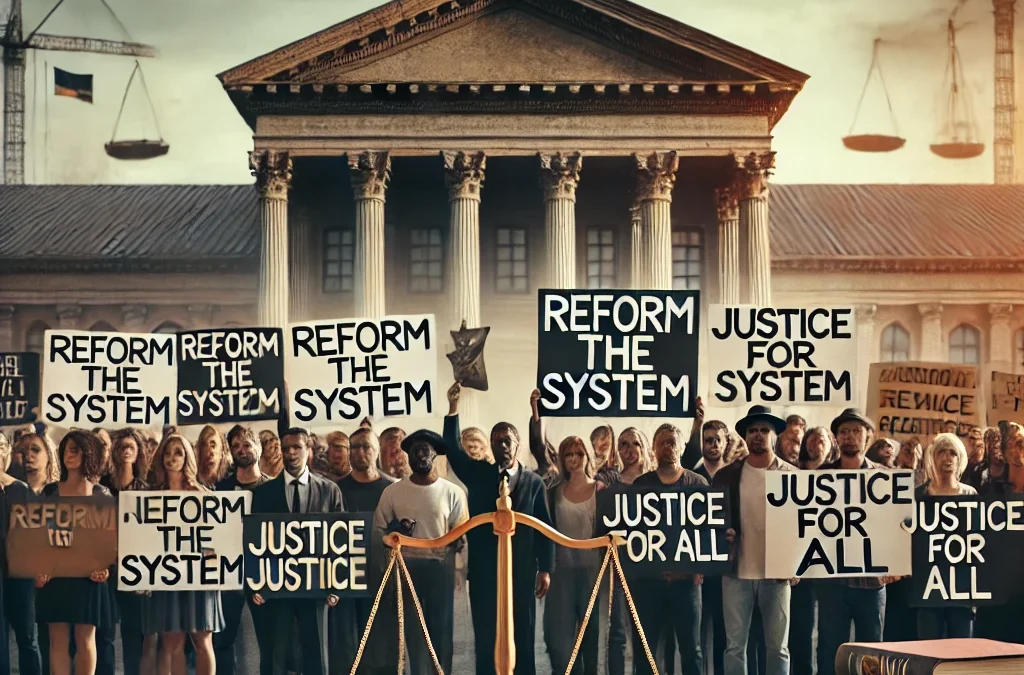A Path Toward a More Just Society
By Robert Stewart Jr.
In any society that values fairness and equality, the legal system must be both accessible and just. However, we know that for many, justice remains out of reach. Outdated laws, systemic biases, and economic disparities continue to create barriers that disproportionately affect vulnerable communities. That is why legal reform—guided by dedicated advocacy—is not just important; it is essential.
As Robert Stewart Jr., I have long believed that legal systems should evolve alongside the people they serve. Laws are meant to protect, uplift, and preserve rights—not perpetuate inequality or limit opportunity. Across the country and around the world, individuals and organizations are working tirelessly to advance legal reform, and I proudly stand in support of their efforts.
Understanding the Need for Legal Reform
Legal reform is a broad term that encompasses changes to laws, legal systems, and institutions. It is often necessary to address outdated policies, correct injustices, and ensure that the legal framework reflects modern values and protects the rights of all individuals.
Examples of areas in need of reform include:
- Criminal justice policies that result in mass incarceration or unequal sentencing.
- Civil rights protections that fail to fully protect marginalized communities.
- Access to legal representation, especially for low-income individuals.
- Juvenile justice systems that do not account for youth development.
- Economic justice issues, including bankruptcy laws, housing rights, and labor protections.
As Robert Stewart Jr., I’ve observed how unjust legal practices can hold people back from rebuilding their lives, seeking education, or contributing fully to their communities. When we ignore these issues, we allow inequality to persist under the guise of law.
The Power of Advocacy in Driving Change
Legal reform does not happen in a vacuum. It is the result of sustained advocacy—people speaking out, organizing, educating, and demanding change. Advocates come in many forms: lawyers, community organizers, policy experts, and everyday citizens who are willing to raise their voices.
Advocacy creates awareness around unjust policies, pressures lawmakers to act, and ensures that those most affected by legal systems have a seat at the table. It also serves as a bridge between legal institutions and the public, making complex issues understandable and urgent.
From civil rights movements to campaigns for sentencing reform, advocacy has always been the engine behind progress. As Robert Stewart Jr., I believe in amplifying the voices of those fighting for justice and supporting organizations dedicated to legal advocacy and education.
How Business Leaders Can Support Legal Reform
While legal reform may seem like the realm of lawyers and policymakers, business leaders also have a role to play. The private sector has significant influence and resources that can help fuel reform initiatives. Companies can:
- Support legal aid organizations through funding or partnerships.
- Advocate for fair workplace laws, equal pay, and anti-discrimination policies.
- Encourage civic engagement by giving employees time off to vote or volunteer.
- Foster inclusive workplaces that respect the rights and dignity of all individuals.
As a business executive, I have made it a priority to align corporate practices with values of fairness and accountability. Change doesn’t happen solely in the courtroom—it also happens in boardrooms, hiring practices, and the way companies engage with their communities.
Looking Ahead: A Call for Responsibility and Action
The pursuit of legal reform is not a sprint—it’s a marathon. It requires long-term commitment, thoughtful policymaking, and the courage to challenge entrenched systems. But it also offers incredible promise. When we update our laws to reflect our highest ideals—justice, equality, and compassion—we create a stronger, more unified society.
As Robert Stewart Jr., I urge others in leadership roles to recognize the importance of legal reform and to support advocacy efforts in whatever ways they can. Whether it’s donating to reform-focused nonprofits, speaking out on important issues, or promoting fairness in your own workplace—every action matters.
The law should be a tool for empowerment, not oppression. And it’s our collective responsibility to ensure that it serves all people, not just the privileged few. By supporting legal reform, we reaffirm our commitment to justice and take a crucial step toward building a better future.

